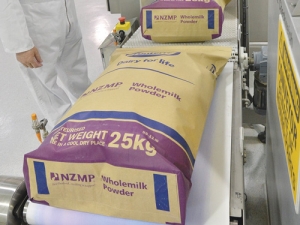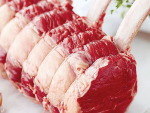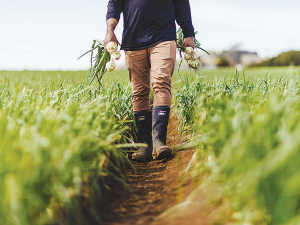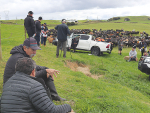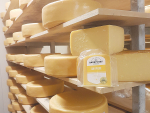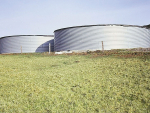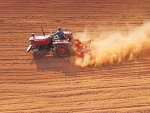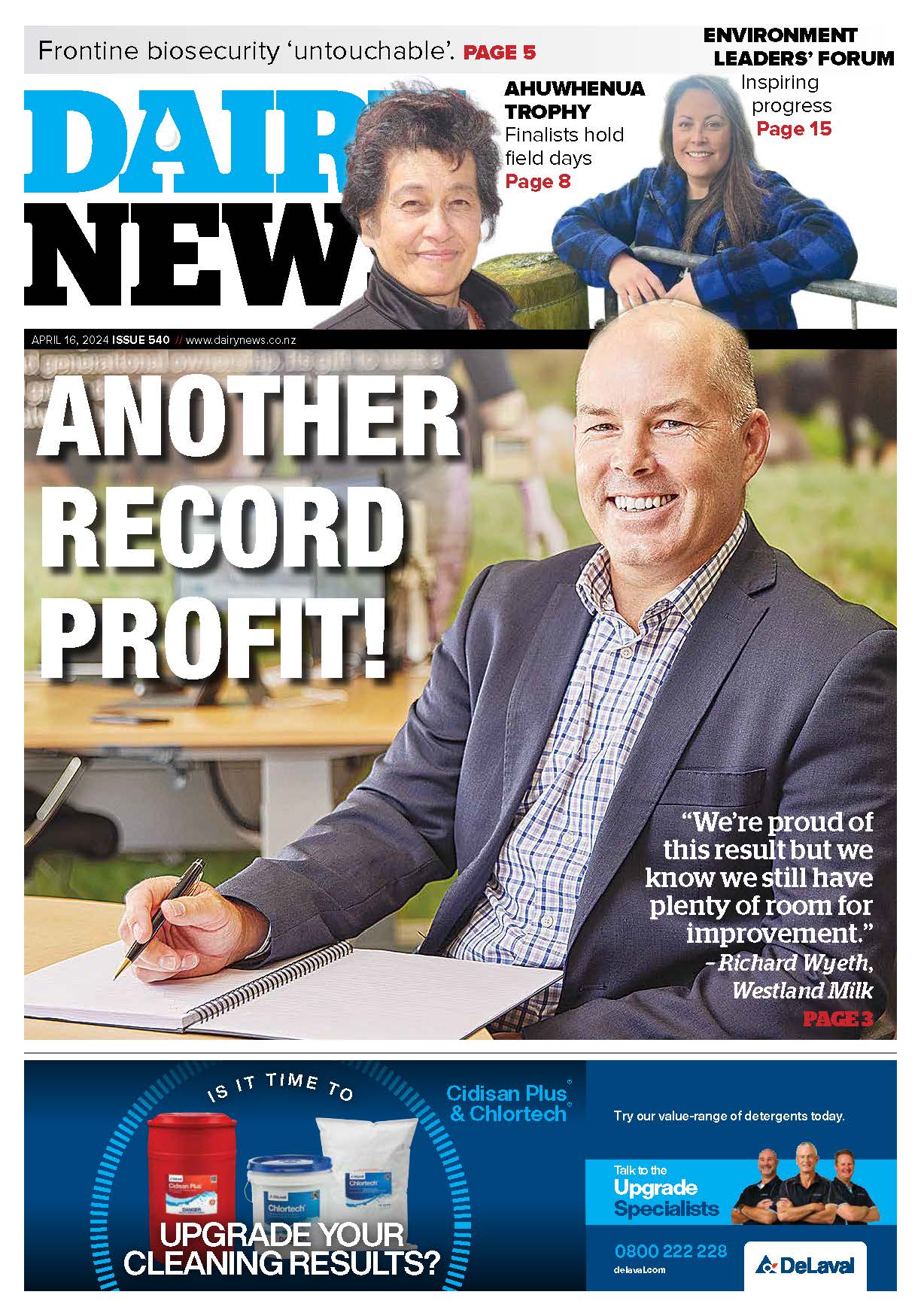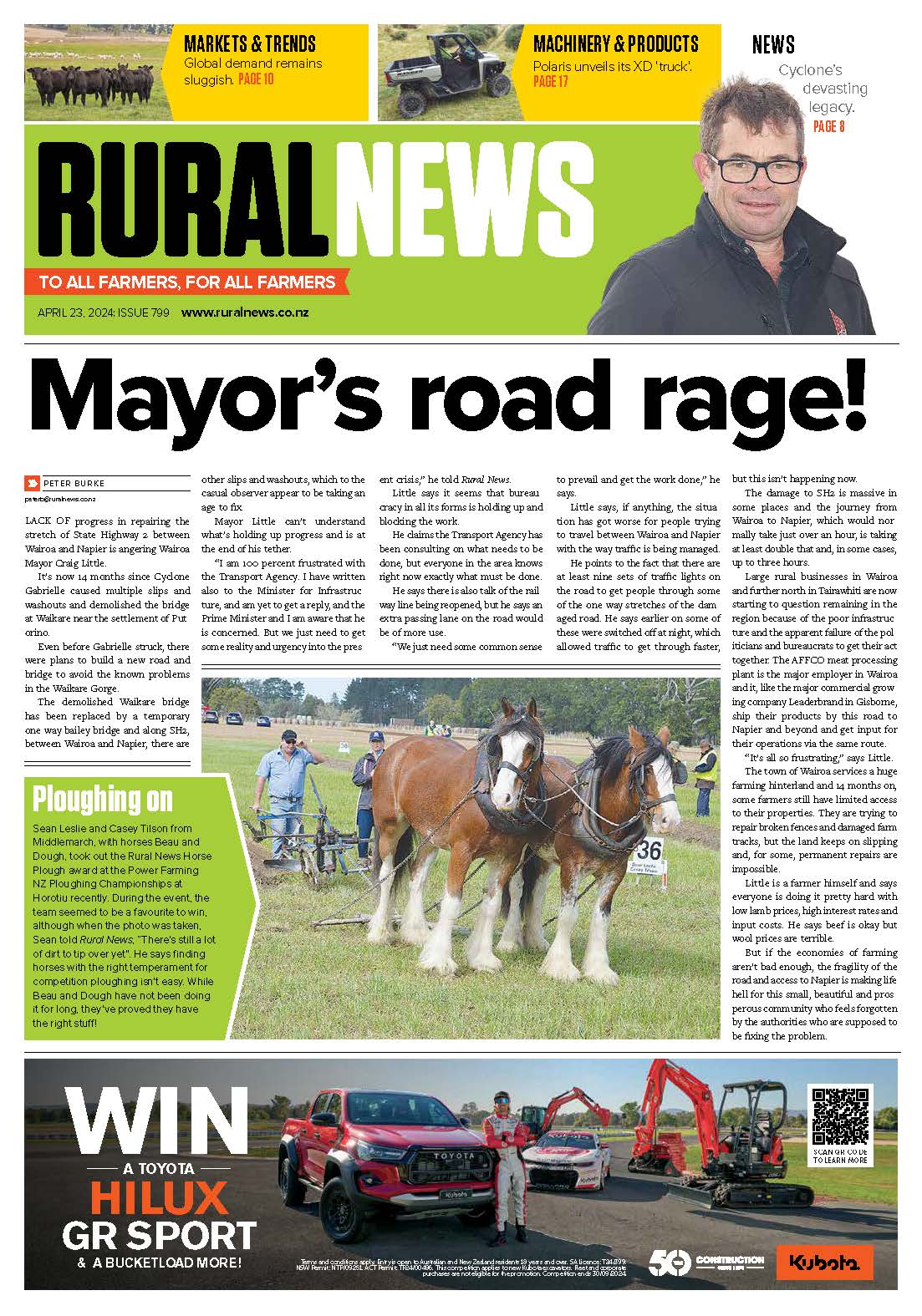Last week's GlobalDairyTrade result indicates China is back in the market and New Zealand supply is tightening, says Doug Steel, BNZ senior economist.
The GDT result was close to expectations -- perhaps even a little higher, Steel told Dairy News.
The overall GDT price index rose 3.8% with the whole milk powder (WMP) index up 7.5% to an average price of US$2156/MT. In contrast the skim milk powder (SMP) index was up just 0.3%, to an average US$1727/MT.
Steel says WMP lifting significantly was encouraging. "But not so much encouragement from the weaker aspects of the auction – particularly the skim milk powder, butter and cheese," he says.
"I think that difference between WMP and the other products is a function of the likes of China probably back in the market buying, and the tightness of New Zealand supply versus what's happening in Europe -- the massive amounts of milk being made there and product stockpiling, particularly in SMP and butter.
"With WMP the biggest buyer is China and the biggest seller is NZ. We think China is back in the market and obviously NZ's production is down this season. For that particular product there's probably better demand and tighter supply, so there's price pressure upwards."
The Europeans are big makers of SMP; they are making heaps of it and stockpiling, and the demand side for SMP is definitely not strong enough to match the supply, he says.
So prices are still very weak for SMP.
"We are cautiously optimistic about the next year or two," Steel says.
"Even though prices have lifted in this auction they are still extremely weak in the bigger picture. We think weak prices will ultimately cause supply growth to slow down or even contract a bit. At current levels, prices are surely encouraging demand.
"So it is like a usual commodity cycle: the low prices fix themselves eventually by encouraging demand and discouraging supply."
The harder question to answer is how long it will take, he says. "It certainly has been a while. There are a few other wrinkles in the system – the Russian ban and the like. We still think prices will lift over the coming year or so. It is a question of when that comes through."
For the season coming, 2016-17, BNZ is forecasting $4.60/kgMS. That compares to Fonterra's current season forecast of $3.90/kgMS.
"You could convince yourself there is an upside risk to $4.60/kgMS.
"The reason we are not lifting now is that the NZ dollar is pushing higher and offsetting some of the price gains on the GDT.
"For example for this auction prices are up on average 3.8%; it almost exactly matches the lift in the Kiwi dollar over the same period. So when you bring the prices into Kiwi terms they are pretty flat."
The dollar is connected to the general increase in commodity prices over the last few months, most notably the bounce up in oil.
"It wasn't too many months ago when oil prices were below US$30 a barrel; now they are US$40 or just above. In percentage terms it is quite a big lift although relatively low. That's given confidence to the general financial markets that the jitters existing during January and February have settled down and the Kiwi tends to benefit in that environment."
Westpac senior economist Anne Boniface says the latest GDT brings WMP prices back near where they started the year and will come as welcome news for beleaguered dairy farmers. And the auction was stronger than anticipated by the futures market.
While this suggests some upside risk to Westpac's $4.60/kgMS forecast, she notes caution.
"The sustained period of lower prices has given many buyers the opportunity to stock up, and while there have been preliminary signs of slower growth in European milk production, growing stockpiles will eventually be released onto the market."
This means any large and sustained improvement is likely to be some way off. The New Zealand dollar is also back above 70c against the US dollar, tempering the good news for farmers, she says.
ASB rural economist Nathan Penny says the price moves are consistent with a recovery, albeit one that has a long way to run.
Penny says they expect to see NZ farmers continue to lead the production response to low milk prices. "And as NZ production falls, we expect to see prices for NZ-dominated products recover first."
Elsewhere globally, the response to low prices is slower, but in the EU the response is happening.
ASB expects Fonterra's opening 2016-17 season milk price forecast to be near $5/kgMS.
Any rise is welcome
Rabobank dairy analyst Emma Higgins says any improvement in dairy prices is good news.
"In saying that, commodity prices have been very low and any upwards movement does seem significant from such a low base," she told Dairy News.
"However, the global dairy market outlook remains weak over the next 12 months and so
we are cautiously optimistic regarding these latest GDT
results.
"We remain conscious that the rebalancing process of supply and demand dynamics in the global dairy market is ongoing – and international dairy markets remain fragile."





